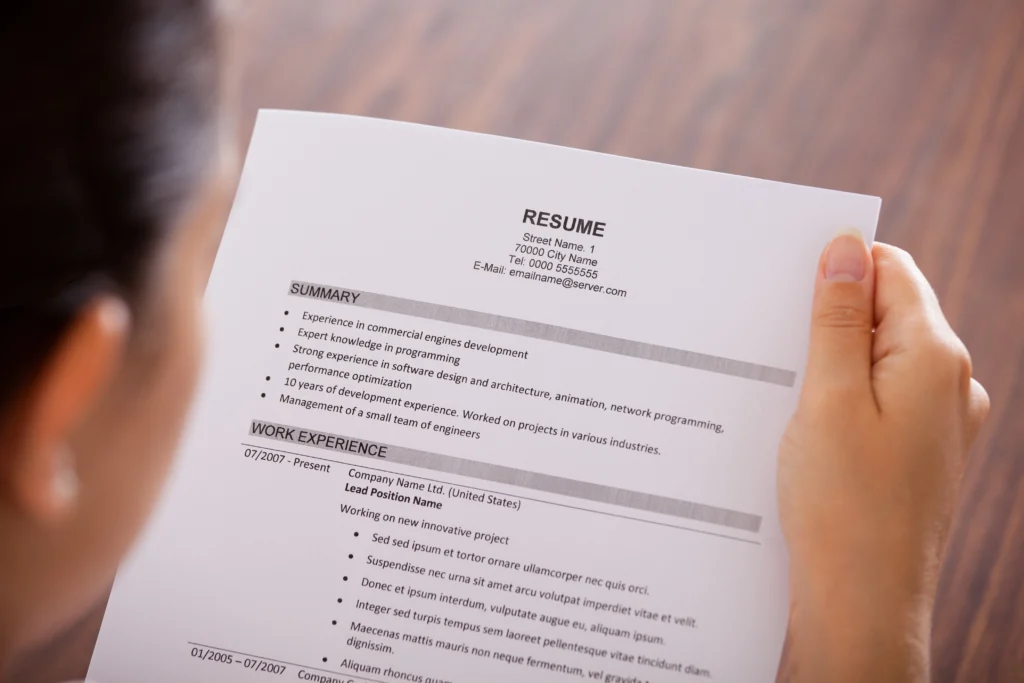
Did you know that 53% of college graduates are either unemployed or working at a job that doesn’t require a Bachelor’s degree?
Additionally, it takes the average college graduate anywhere from three to six months to secure a job after they’ve graduated.
What does this mean for you as a college student?
Now is the perfect opportunity to do two things at once—get an education and build an impressive resume. Attending college is about more than going to classes and attending pep rallies. It’s also about career planning—using these four years to prepare for what comes after, the job.
How can you build a resume if you’re not even working? Like college, a resume might be more than you’d expect. In addition to work history (if you have it), it’s also a list of your achievements and awards; a place to highlight your volunteer work or on-the-job training; and so much more.
Here are six strategic ways to build your resume, therefore building the foundation for your life to come!
1. Getting an Internship Is a Serious Resume Booster

You knew we were going to say this, didn’t you?
Chances are you’ve already talked to someone about getting an internship. Many colleges require students to do so as a way to get OTJ experience in their field. It’s also a fantastic way to meet people that share similar interests and goals, as well as those who’ve succeeded at them who can offer advice and insight.
Getting an internship, like getting a job, comes with its competition, too.
It’s important to start looking at internship options early, while also relying on on-campus resources (like advisors) for help. Don’t neglect to tap into these resources, like your on-campus career center, many of which are free—who better to steer you in the right direction?
Be prepared to interview for an internship like you would a job, discussing lessons you’ve learned from past jobs or experiences, explaining why you’re the best candidate, and highlighting your campus engagement. Haven’t done much resume-worthy activity on campus yet?
You’ll want to keep reading.
2. Volunteer for On-Campus Events as a Show of Engagement

Do you interact well with your fellow students? Do you know the names of your peers? Do you participate in clubs, extracurriculars, sports, afterschool events?
If not, it’s time to get social. Both internships now and careers later will look for things like this as a way to show strong character and leadership skills. Plus, being a part of your community is an excellent way to show your compassion toward the neighborhood.
One way to do so is through volunteer work, which serves a double purpose—allowing you to pad your resume while donating your time. Ask your favorite teacher, your overworked roommate, or the class president how you can help make a difference on campus, and we guarantee they’ll have a job for you.
Not sure where to begin?
Joining one or more clubs is an excellent place to start. Clubs, like volunteering, deserve their space on your resume, as they show you as an active member of society. Use the club to get connected with people in your industry, helping them as they help you.
3. Strive for Academic Honors to Highlight Your Consistency

What’s one quality employers love to see in their employees?
Regularity. Consistency. Dedication.
One way to highlight this attribute in yourself is to strive for Academic Honors achievements, receiving them because of hard work, time, and a firm commitment to do well. No one wins a National Merit Scholarship because they were lazy or inconsistent—missing deadlines here, losing homework there. If you receive impressive accolades such as these, it’ll be tangible proof of all the hours you put into making it happen.
As this article shows, there’s no lack of awards to strive for—Honor Roll, Honor Society member, even your GPA can work as evidence towards your devotedness.
Whatever it is, it deserves to go on your resume!
4. Show Your Worth Ethic by . . . Working!

You didn’t think we’d tell you to get a job to add to your resume, did you?
Well, we are—kind of.
Depending on the position you’re in, you may or may not be able to hold a job down while also being in school full-time. Some people can do this thanks to grants or scholarships, parents, financial aid, and other types of assistance, while many others have to work at the same time, to pay for their education.
If you are currently working or have held any type of job in the past, it’s important to highlight it. It doesn’t matter what work you did—camp counselor, drive-thru cashier, lifeguard, retail worker—just that you did a job that taught you something. That’s the main point: to be able to explain what you learned from your job and how it has helped you become more well-rounded as a career candidate.
Another thing worth knowing about is work-study programs.
When a school participates in a Federal Work-Study Program, a qualified student has the option to earn money to pay for school through part-time jobs either on- or off-campus. This allows students to obtain a college degree while also getting work experience—something that’s sure to come in handy during the resume writing process.
Applying for and receiving Federal Work-Study funds shows that you care enough about your education to work for it, a skill that’s sure to translate well in the workforce. It also proves you’re able to handle larger loads of work, balancing work and school adequately.
If you go this route, be sure to tell future prospective employers about it as a way to highlight a strong work ethic.
5. Make a Connection With the Career Coach on Campus

Earlier, we mentioned campus resources, one of them being the campus’s offering of career coaches.
College career centers provide a wide range of services; it’s just up to the students to utilize them. Become familiar with this building on campus, learning the different offerings, designed to help you succeed.
A career coach is an invaluable resource worth tapping into here. What can one do for you?
For one, they can help you determine a career path altogether. Many a college student has felt the pressures of not knowing what they want to do after graduation. A career coach can help you assess your skills and narrow down the many options, allowing you to choose a path that’s most suitable for you.
If you’re already going down the track you want, they can help optimize your strategy to ensure it’s working. From resume and cover letter writing to job interview prep, a career coach assists students in navigating a successful working life after school. They might even set you up with internships in your field, or introduce you to other professional connections.
In other words—it’s time to take a much-needed trip. Career center, here we come!
6. Network, Network, Network

Networking isn’t just for your mom and dad, or your bosses and their colleagues.
It’s for you, too—right now, as a college student. You can never begin networking too early.
College is, unsurprisingly, the perfect place to start networking. There are professionals everywhere, from professors and the aforementioned career coaches to heads of departments and so much more. Not only that—but your peers and their parents!
Squeeze the most you can out of your college experience by playing your student card. Most people don’t have a minute in their day to talk to a stranger, but if you approach an alumni and ask for advice, student to student, they’re sure to make an exception.
Ask questions, lots of them.
Do you have friends with well-connected parents? It wouldn’t hurt to approach your buddy’s dad for an informal conversation about business, so don’t overlook those that are right in front of you. The same applies to any connections you might make at your internship or in clubs.
An Impressive Resume Doesn’t Happen By Chance
Rather, it takes the three Ps—proper prior planning—a whole lot of dedication, and some serious determination.
The job hunt might be a competitive one, but if you start thinking about your future today, you’ll give yourself the edge over those who don’t. Begin building an impressive resume by interning, researching work-study programs, joining an Honor Society—whatever it is your industry might consider a leg up. Show them what an ideal candidate you are by showing up for you, now.
And don’t forget to have fun every once in a while! After all, you’re in college!
To keep yourself entertained, keep coming back to our page. We’ve got your back through all the ins and outs of college life and beyond.













